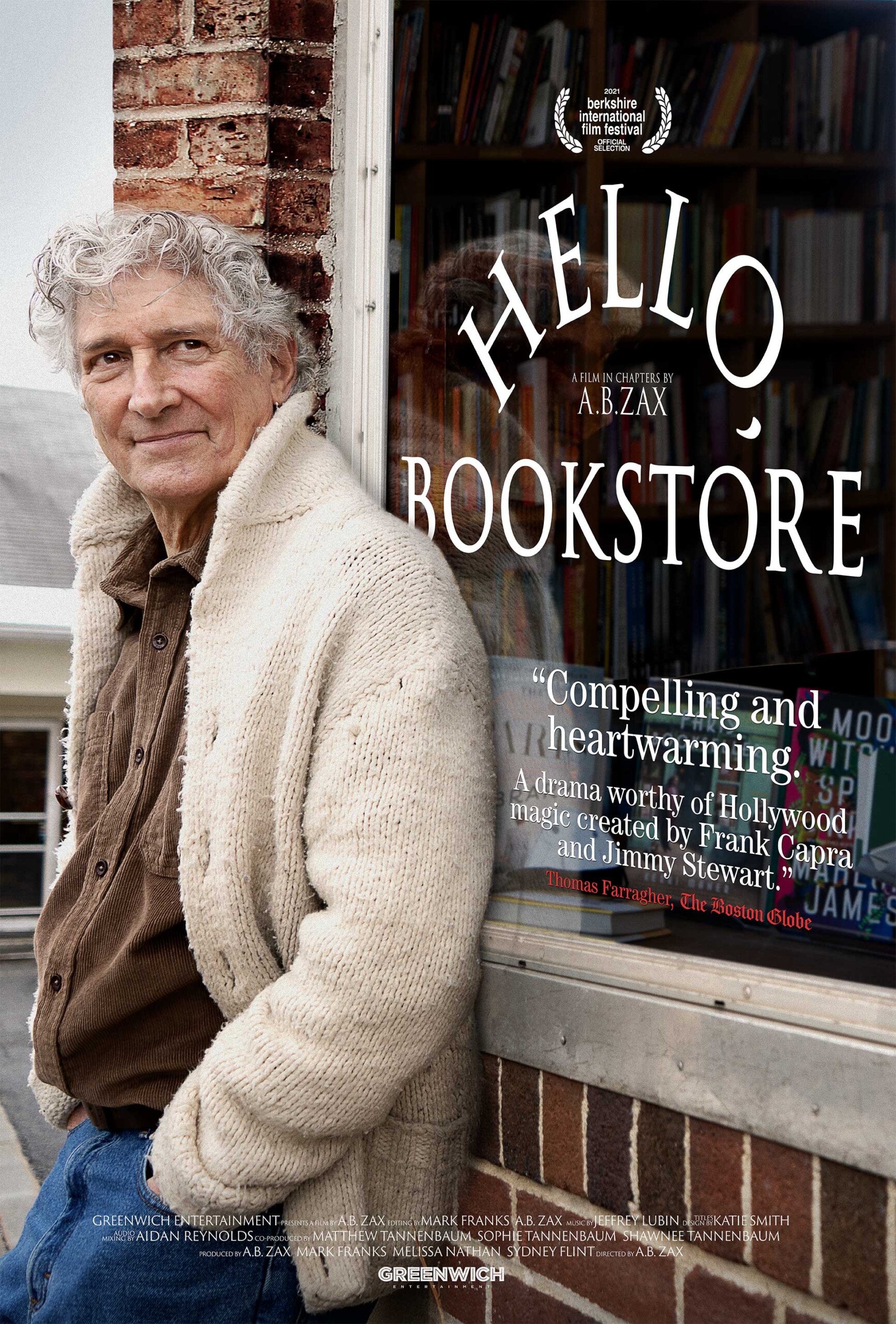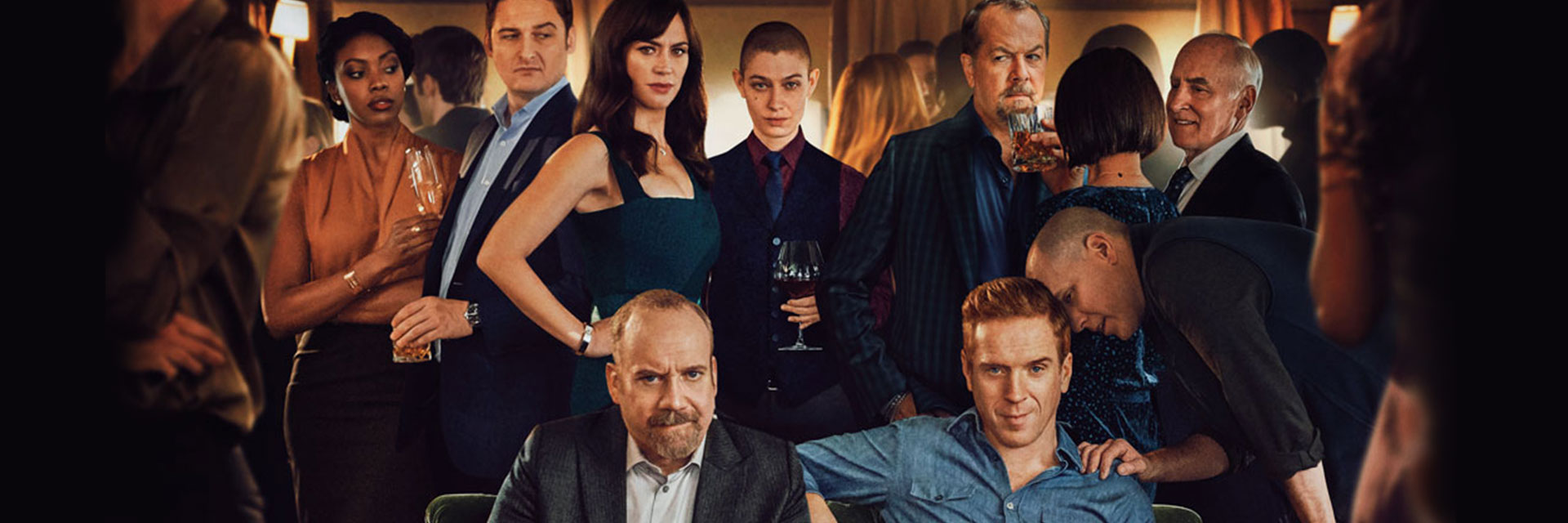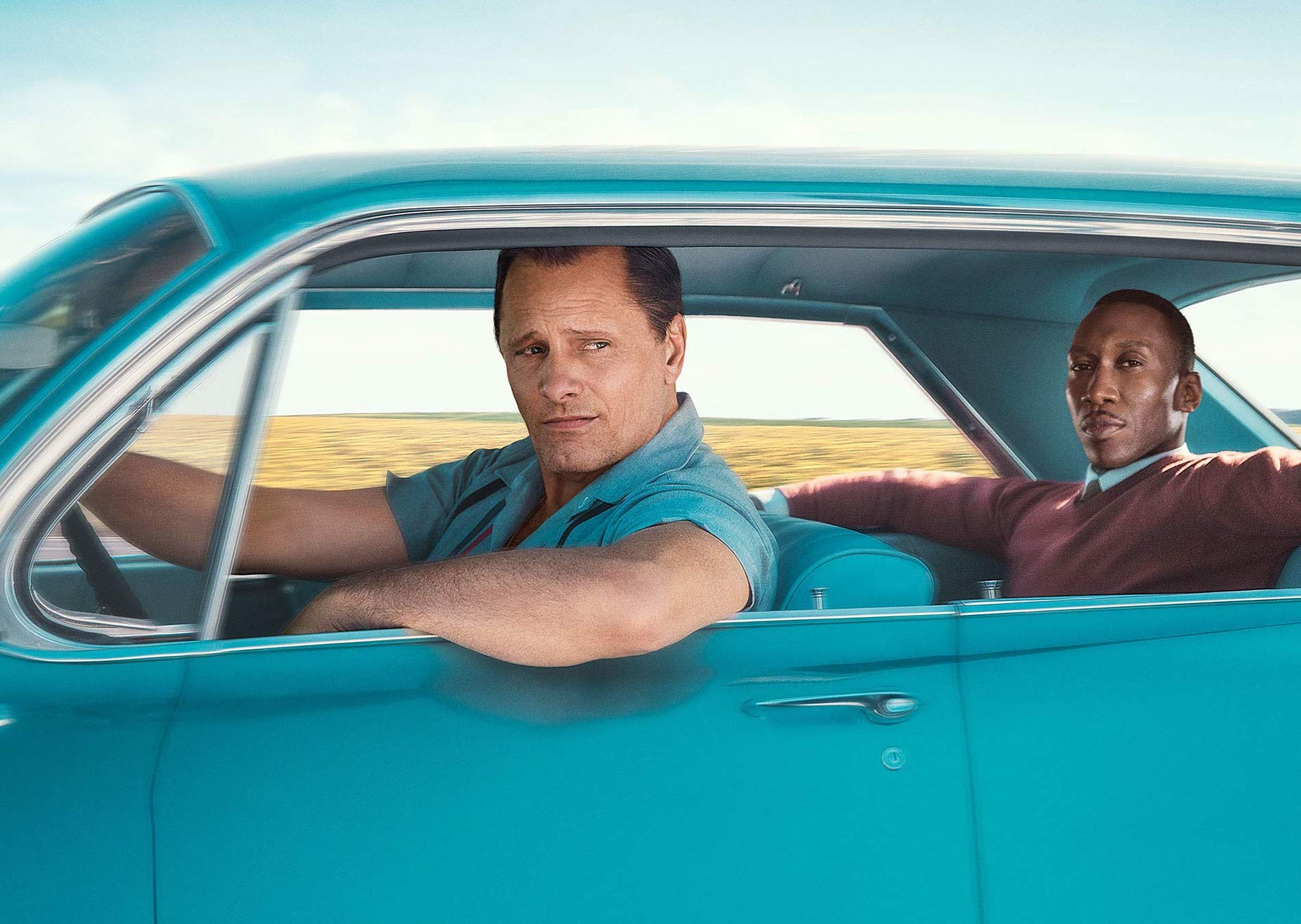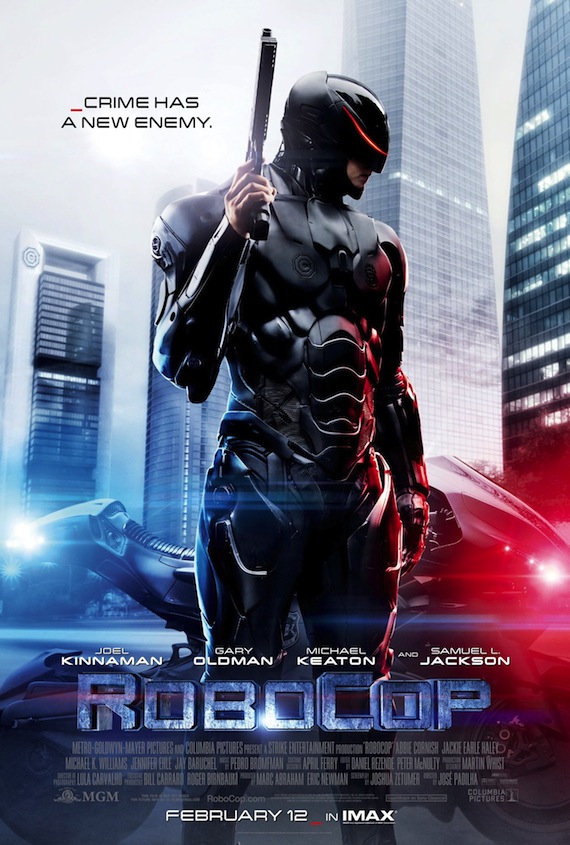
Of all the things gnawing on George W. Bush as he shuffles around his retirement ranch in Texas, I’m guessing the most galling is the fact that he is the only president in the past quarter century who did not have a RoboCop movie released on his watch. That’s got to hurt. In the course of every presidential administration since the Gipper’s — with the notable exception of W’s — a new RoboCop has come out. And down through those many years, America has always gotten the RoboCop it deserved.
(Surely Bush fils is asking himself, “What did I do to deserve…nothing?” The answer: Plenty.)
The latest installment in the RoboCop franchise, now playing in a multiplex near you, once again proves that these movies may fail as movies, but they never fail to illuminate the zeitgeist in which they’re made. The new movie, like its three predecessors, is set in the not-too-distant future in my hometown, Detroit, a city that was chosen as the setting for the original movie in 1987 because it was already well on its way to becoming the sort of dysfunctional dystopia the filmmakers needed to convey their message. The Motor City, once the mightiest industrial dynamo on the planet, had morphed in a few short years into Murder City — the perfect proving ground for a crime-fighter who was, as the movie’s poster put it, “Part Man, Part Machine, All Cop.”
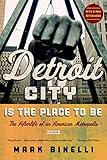 We Detroiters tend to be inordinately proud of our city’s history, both the good and the bad — its music, its cars, its sports teams, its struggles on behalf of working men and women, its rough edges. In his terrific 2012 book, Detroit City Is the Place to Be: The Afterlife of an American Metropolis, Mark Binelli beautifully captured this skewed civic pride: “Back when I was a boy, growing up just outside Detroit, my friends and I beheld any mention of the city in popular culture with a special thrill. We loved how Detroit was deemed terrifying enough to be chosen as the dystopian locale of ‘RoboCop,’ the science fiction film set in a coyly undated ‘near future,’ when Detroit had become so dangerous that the outsourcing of law enforcement to an armored, heavily weaponized cyborg would seem a prudent and necessary move.”
We Detroiters tend to be inordinately proud of our city’s history, both the good and the bad — its music, its cars, its sports teams, its struggles on behalf of working men and women, its rough edges. In his terrific 2012 book, Detroit City Is the Place to Be: The Afterlife of an American Metropolis, Mark Binelli beautifully captured this skewed civic pride: “Back when I was a boy, growing up just outside Detroit, my friends and I beheld any mention of the city in popular culture with a special thrill. We loved how Detroit was deemed terrifying enough to be chosen as the dystopian locale of ‘RoboCop,’ the science fiction film set in a coyly undated ‘near future,’ when Detroit had become so dangerous that the outsourcing of law enforcement to an armored, heavily weaponized cyborg would seem a prudent and necessary move.”
The original RoboCop is now regarded as a sci-fi classic, largely because it asked a question of enduring interest: Are machines capable of emotions? But even as the RoboCop movies have declined in quality, they have served as ever-sharper reflections of what’s been going on in the culture at large. Let’s follow the downward spiral:
RoboCop (1987)
 The 1970s were the last hurrah for the American middle class. Then along came Ronald Reagan to begin the long, ongoing job of dismantling the middle class by shifting its wealth and political power to corporate, government and wealthy elites. Today, thanks in no small part to Ronald Reagan and his spawn, more wealth is in fewer hands than at any time since the stock market crash of 1929.
The 1970s were the last hurrah for the American middle class. Then along came Ronald Reagan to begin the long, ongoing job of dismantling the middle class by shifting its wealth and political power to corporate, government and wealthy elites. Today, thanks in no small part to Ronald Reagan and his spawn, more wealth is in fewer hands than at any time since the stock market crash of 1929.
RoboCop arrived at the perfect moment. Reagan’s second term was about to segue into the lone term of Papa Bush, and many Americans were feeling fat and happy and proud to be American, provided they didn’t live in a blighted pocket like inner-city Detroit or hadn’t had their job outsourced to an autoworker in Mexico. Peter Weller starred as Alex Murphy, a Detroit cop killed by drug dealers in the line of duty, who then has his vitals harvested and installed in a cyborg, turning him into a virtually indestructible cop. This nifty trick is the handiwork of a greedy conglomerate called Omni Consumer Products, which has taken over the Detroit police force and has big plans to build a development in the heart of the city and control its lucrative drug, gambling, and prostitution rackets. Privatizing a big-city police department — it’s very 1980s, an idea only Ronald Reagan and Margaret Thatcher could love. “Trickle-down economics” can be seen trickling in the only direction it ever knew — straight up to the corporate boardroom.
The movie was deftly directed by Paul Verhoeven and written by Edward Neumeier and Michael Miner. The writers are blessed with a droll sense of humor, slipping in a mention of Lee Iacocca Elementary School, a nod to the best-selling 1984 book by the Chrysler CEO, an egomaniacal tycoon cut from Reaganite cloth. There are also jabs at dumbed-down TV news, a recurring theme in the coming movies, as when a blow-dried newscaster intones, “You give us three minutes, we’ll give you the world.” There’s even a jab at Star Wars — Reagan’s La-La-Land defense fantasy, not the movie.
Amid all the corporate greed, violent crime, and official corruption, the thing that gives the movie its humanity is, oddly, its cyborg. RoboCop is tortured by scraps of memories of his previous life. “I can feel them but I can’t remember them,” he says of Alex Murphy’s wife and young son. But RoboCop’s best line is a blend of Dirty Harry and that other icon from the pumped-up Reagan ’80s, The Terminator. Staring down a criminal, RoboCop says, “Your move, creep.”
RoboCop 2 (1990)
 This first of two sequels was a perfect fit for its times — a re-tread movie released during George H.W. Bush’s re-tread presidency. Both flopped. Unlike the Bush presidency, though, the movie franchise got another chance.
This first of two sequels was a perfect fit for its times — a re-tread movie released during George H.W. Bush’s re-tread presidency. Both flopped. Unlike the Bush presidency, though, the movie franchise got another chance.
Weller returned in the title role, but Verhoeven was replaced by director Irvin Kershner. Worse, the screenwriters Neumeier and Miner were replaced by Walon Green and Frank Miller. The result has none of the original’s wit or snap.
This time Omni Consumer Products wants to privatize the whole city of Detroit, and there’s a new designer drug on the streets called Nuke. Otherwise the movie feels as bland and generic as the era during which it was made. The only sign that we’re in Detroit are the logos on the police car doors. (The movie was shot mostly in Houston and L.A.) The TV newscasters are the witty ones here, as when a chirpy blonde talking head is told that environmentalists are warning that a pesky little nuclear meltdown could lead to a massive environmental disaster. “Don’t they always say that?” she says before going to a commercial break.
One reviewer noted that RoboCop 2 was “as savagely graphic as its predecessor but less skillful by half.” The same could be said of the Bush and Reagan presidencies.
RoboCop 3 (1993)
 In the first year of the Clinton administration, long before Monica and the Gap dress, the keepers of the flame brought out RoboCop 3, directed by Fred Dekker and written by him and Frank Miller. Peter Weller climbed out of the metal suit once and for all — he described it as the most unpleasant acting experience of his career — and Robert John Burke stepped in.
In the first year of the Clinton administration, long before Monica and the Gap dress, the keepers of the flame brought out RoboCop 3, directed by Fred Dekker and written by him and Frank Miller. Peter Weller climbed out of the metal suit once and for all — he described it as the most unpleasant acting experience of his career — and Robert John Burke stepped in.
The movie is a dreary rehash, but it does offer one timely twist. A Japanese conglomerate called Kanemitsu now owns and operates all of Detroit, and it plans to clear out thousands of residents in order to complete the Delta City development. But some plucky Detroiters refuse to budge, igniting a civil war between the corporation’s minions and the citizenry. When the corporate thugs have trouble evicting tenants, the head of Kanemitsu fumes, “Incompetent Americans, you are fat and lazy!”
But the best line belongs to McDaggett, the brutal general who tells Rip Torn, the new CEO of OmniCorp: “If you’re just figuring out that the line between big business and war is a little blurry, then you’re even farther over the hill than they say you are.”
This movie goes a long way toward explaining why RoboCop vanished during the George W. Bush presidency. Years before W was elected, RoboCop 3 laid out the doctrine that would define his presidency: War is big business, and vice-versa; xenophobia is cool; and anyone who disagrees with the government is, de facto, a terrorist.
Even in 1993, the message was stale. Roger Ebert asked himself why people persist in making such re-tread movies. His answer: “Because ‘RoboCop’ is a brand name, I guess, and this is this year’s new model. It’s an old tradition in Detroit to take an old design and slap on some fresh chrome.”
The Detroiter in me hates to admit it, but the man was right.
RoboCop (2014)
There is exactly one worthwhile scene in the new RoboCop, which is a remake of the 1987 original, unlike the second and third movies in the series, which were sequels. There’s a big difference. Sequels try to say something new with familiar material; remakes are content to update and rearrange the furniture.
As this new remake opens, we’re in the future on the streets of Tehran, the capital of America’s latest Middle Eastern enemy. A TV news crew, led by yet another chirpy blonde, is getting ready to deliver live footage of the new generation of cyborgs that allow America to fight its pointless wars without any pointless risk to American lives. While drone aircraft swoop overhead and gigantic Transformer-esque machines stomp through the streets, robots electronically scan terrified Iranian civilians for signs of bombs, weapons or other threats. Meanwhile, inside a nearby building, a group of Iranian men are strapping explosives to their torsos and reminding each other that “the goal is to die on TV.”
This is meta. This has potential. But as soon as the American machines slaughter the Iranian martyrs, the movie abruptly abandons the timely questions it has raised about the morality of drone warfare and the complicity of the news media in promoting the government’s dubious agenda. Instead, the movie shifts to Detroit, where it proceeds to ignore another potentially rich vein: Detroit’s current bankruptcy, the largest in American history, which has left the city so broken that it takes an hour for cops to respond to emergency calls, most streetlights never get turned on, the population has fallen by more than half, and rich philanthropists had to pony up hundreds of millions of dollars to keep debt-collecting wolves from ransacking one of the city’s last assets, its glorious Institute of Arts. This isn’t some futuristic dystopia; this is Detroit today.
But this RoboCop has no interest in examining such pungent contemporary material because it’s content to remain a fantasy. Once again, the result is generic escapism that could have been made anywhere. (Other than some nice aerial shots of Detroit, most of it was filmed in Canada.) The only splash of local color the movie gets right is Detroit’s rococo strain of official corruption. In the movie, several Detroit cops have been funneling high-powered rifles from the evidence locker to a local arms merchant, with the full cooperation of the chief of police. Now that’s verisimilitude. In 1992, Detroit police chief William Hart was sentenced to 10 years in prison for stealing $2.6 million from a police fund used for making undercover narcotics buys.
But that splash of local color is washed away by the bombastic, jingoistic histrionics of a TV pundit named Pat Novak, played by Samuel L. Jackson. It’s painful to watch this talented actor slog through material that doesn’t even rise to the level of a parody of a parody of Bill O’Reilly. Yet somehow these dreadful Novak segments fit perfectly into a movie that refuses to address the interesting questions it raises — about drone warfare, the morality of crime-fighting techniques, the human cost of corporate greed. The movie wastes other talented actors, including Gary Oldman, Michael Keaton, Jennifer Ehle, and leading man Joel Kinnaman, already a star in Sweden and soon to become one here. This squandering of opportunity is a tidy metaphor for what Barack Obama has done with his 2008 mandate to make fundamental changes in the way America functions. Dream on.
The filmmakers seem to have decided — no doubt correctly — that after a dozen years of pointless, endless war in Iraq and Afghanistan, the American public is worn out. The American public doesn’t want to think about international wars, political corruption, urban decay, or the gutting of the news media and the middle class The American public just wants to be entertained. And so the makers of the new RoboCop have dutifully given them what they want — another noisy, gimmicky diversion that makes the world go away for all of 108 minutes.
Which is to say that, once again, America has gotten the RoboCop it deserves.






